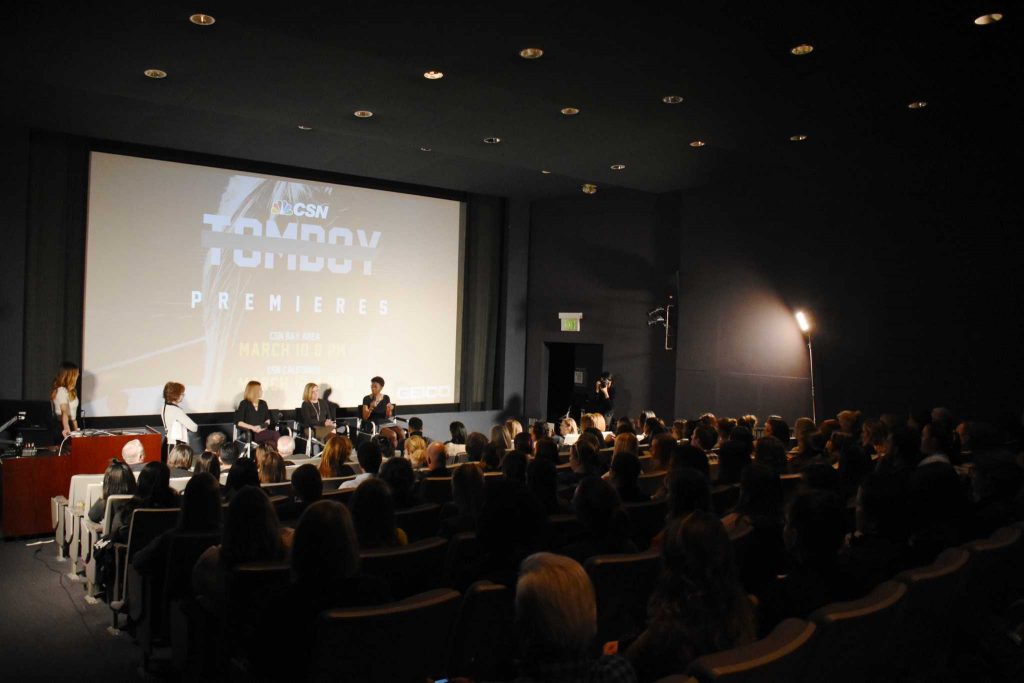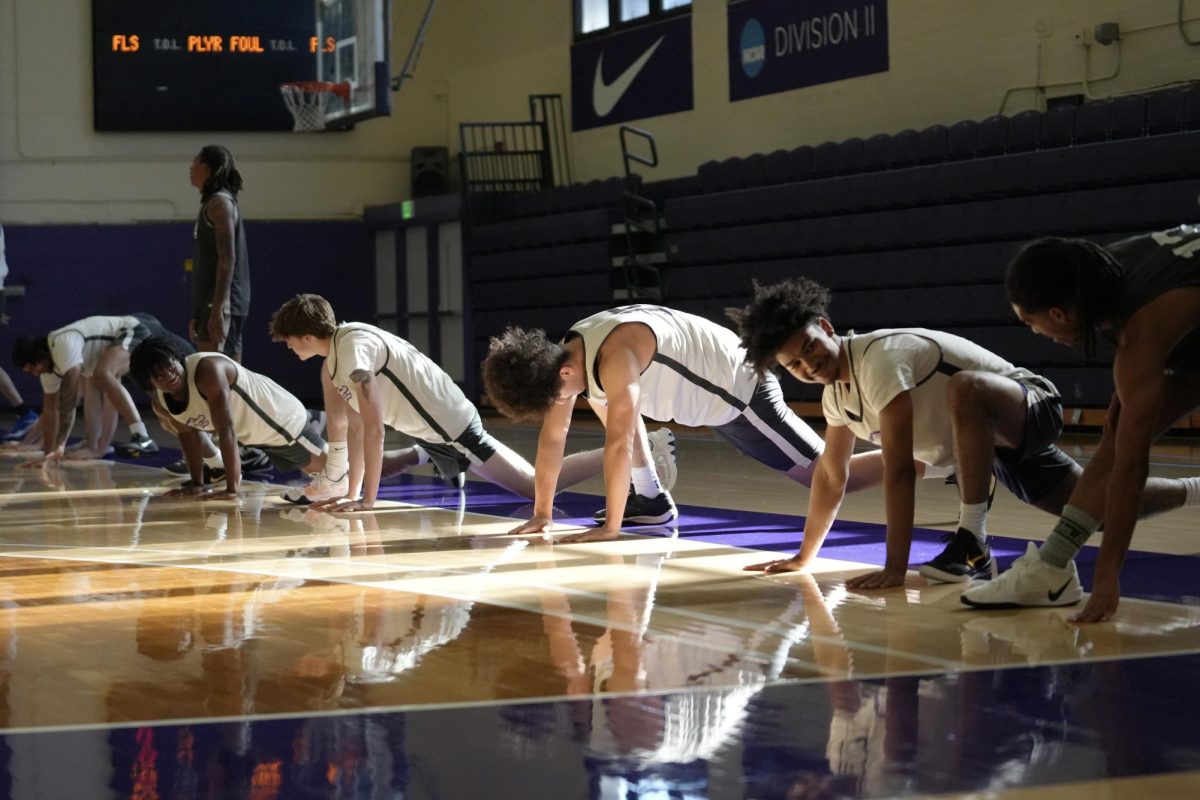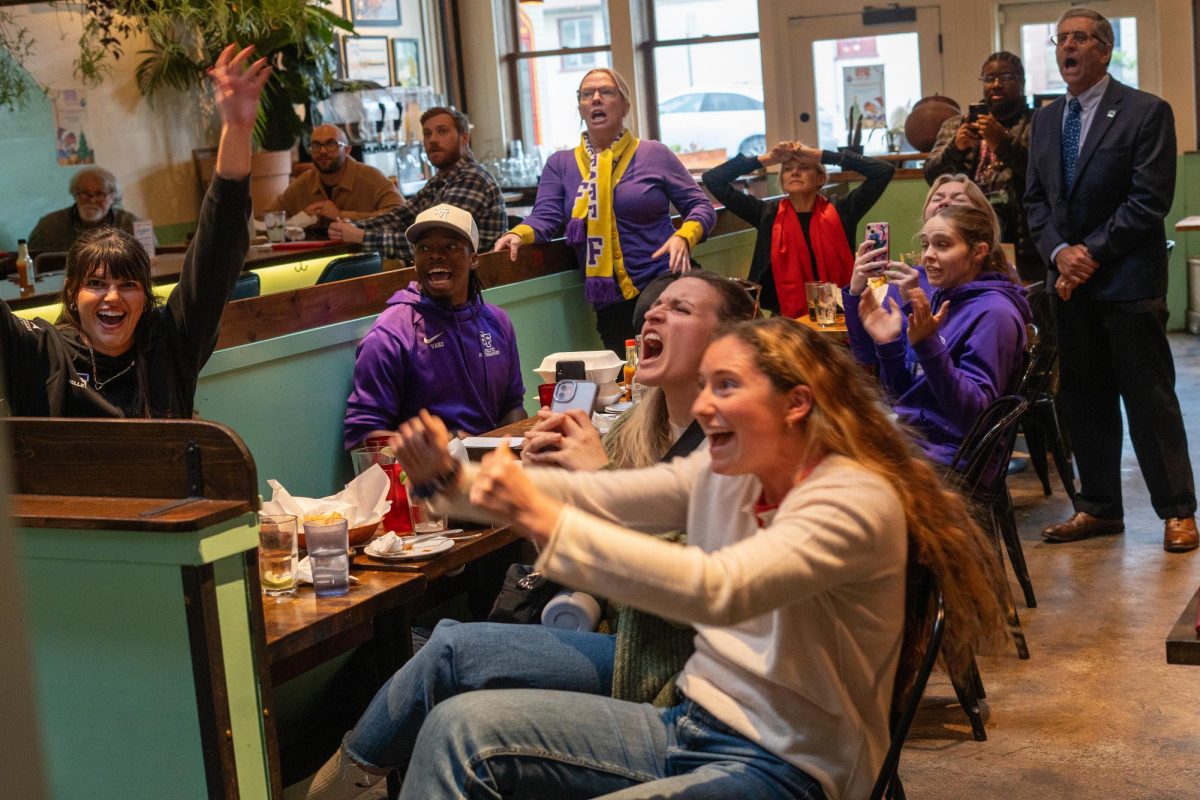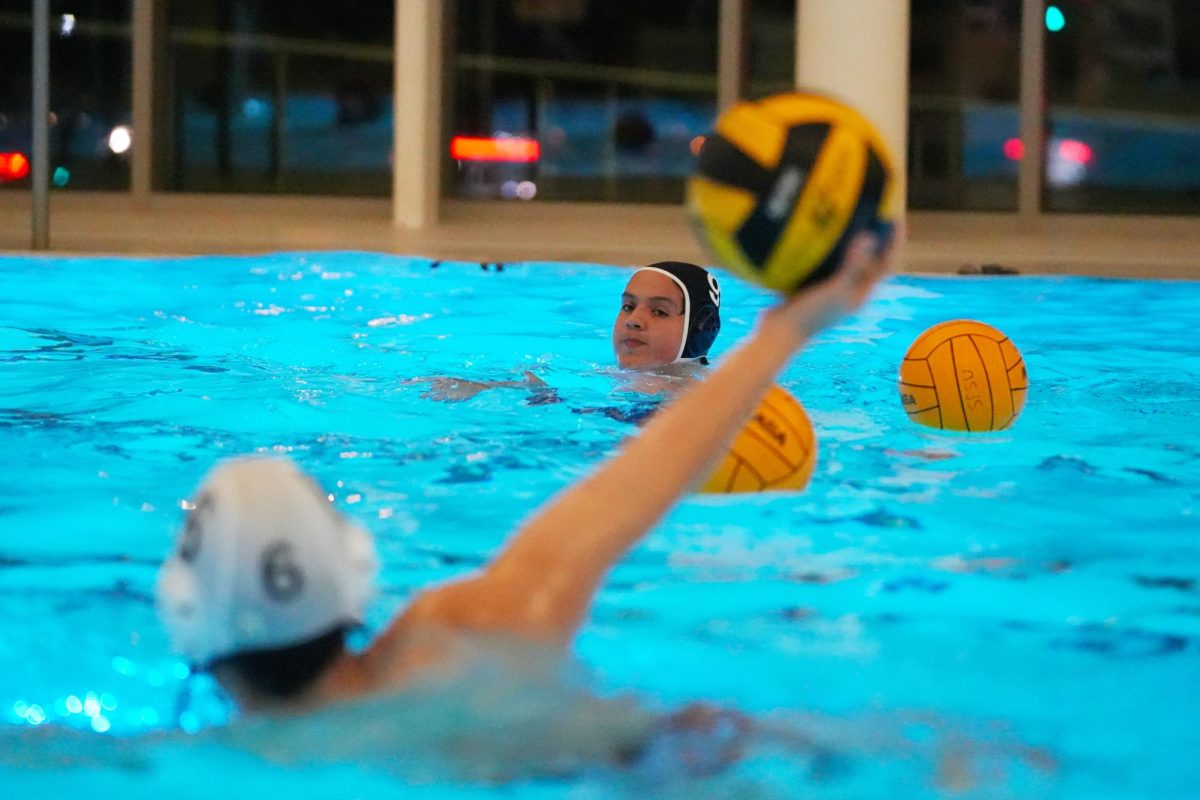The Women in Sports Symposium held at SF State was a jump-start to Women’s History Month, emphasizing the role of women in the sports field.

The symposium, held the last day of February, served as a preface to the matriarchal month. Hosted by CSN Bay Area anchor Kelli Johnson and moderated by pioneer sports journalist Joan Ryan, the all-woman panel discussion featured some of the top names in the Bay Area sports scene. The speakers shared their journeys and highlighted the importance of fostering female leadership and gender equality, not just for one month, but always.
Two of the three featured panels focused on each panelists’ experience working their way to elite positions in a male-dominated industry.
Amid a packed audience of both women and men in SF State’s Coppola Theatre, award-winning columnist Ann Killion kicked off the first panel by sharing her experience entering the world of

sports journalism at a time when opportunities for women were just beginning to open up.
Killion explained that growing up during the women’s liberation movement inspired her to push past barriers.
“In the 80s, newsrooms were looking to diversify,” Killion said. “There was a sensibility that it would be a good idea.”
Killion noted that although a gender dynamic change in the newsroom was inevitable at that point, change was only tolerated in small doses.
“As I’ve said, there’s a uterus hire at most sports departments, which is one, one uterus, not a bunch,” Killion said — eliciting laughter from the audience.
Killion paved the way for the next generation of all-star sports journalists such as San Francisco Giant’s in-game reporter Amy Gutierrez, better known as Amy G. to many Bay Area baseball fans.
Gutierrez admitted her job is definitely the “uterus job in baseball,” but recalled that jobs like hers didn’t really exist when she was growing up.
“As a little girl I did not have Amy G. to look at and say ‘I want to do what she does,’” Gutierrez said. “I feel that, in and of itself, is a huge accomplishment for women in sports.”
Gutierrez, along with many of her fellow panelists involved in the Bay Area sports industry, made it clear that, although the role of women in the industry has become more normalized, especially in the Bay Area, misogyny and gender biases are still present, no matter how subtle or subconscious.
Producer of radio station KNBR’s “Murph and Mac” show and CSN Bay Area audio engineer Taneka Smothers spoke about gender bias she encountered early in her career. The SF State alumna remembered interviewing for a sound editor position at KNBR shortly after graduating.
Smothers said a male program director walked into the room during her interview and asked what position she was applying for. When Smothers told him she was interviewing for the open sound editor position, the man gave her a quizzical look and took a seat beside her.
“He sat down and instead of asking me questions about the job, he asked me questions about sports,” Smothers said, receiving a disgruntled reaction from the audience.
Smothers said after “proving” her knowledge of sports and editing, he was elusive, telling her there was a long list of candidates and he would have to call her back the next week, seemingly brushing her off as a black female candidate.
In the end, the program director called Smothers that same evening, offering her the job as a sound engineer. This moment not only launched her career at KNBR, but also helped establish the fact that women hold equal qualifications as the men in a male-dominated industry.
Gutierrez playfully gave Smothers grief for becoming part of the KNBR team, as Gutierrez discussed that one of her most memorable moments of gender bias was directly related to the on-air talent from the sports-oriented radio station.
On July 10, 2009, during Gutierrez’s second year covering the Giants, lefty pitcher Jonathan Sanchez stunned the MLB with the team’s first no-hitter in more than 30 years. Gutierrez said she knew Sanchez would be her milestone interview as she watched him embrace his teammates.
When Sanchez approached Gutierrez for the on-air broadcast interview, he leaned in to give her a hug, which she happily accepted, congratulating him on his pinnacle moment.
That small, seemingly harmless moment turned into a scandal.
Gutierrez said KNBR specifically targeted her, criticizing her for the moment.
“Tim Lincecum wins the Cy Young Award that week and all they talked about was me hugging Jonathan Sanchez and how unprofessional I was,” Gutierrez said.
Gutierrez said credibility is one of the most difficult issues she deals with as a female sports reporter. She felt her credibility was questioned in that moment because she was a woman who had an emotional reaction.
“Thank God this many years later I can say I wasn’t upset that I did it then and I’m not upset that I did it now,” Gutierrez said unapologeti
cally. “I was me — that’s who I am. If you throw a no-hitter I’m going to give you a hug.”

Many of the panelists emphasized how finding a mentor in their field impacted their success. Yet, a majority of the mentors to these strong women were men in the industry, which may seem counterproductive to the discussion of gender bias.
“I feel really fortunate that I always had a number of people that have guided me professionally along the way,“ said Catherine Aker, director of corporate communications for the Oakland A’s. “I have to say, they’ve all been male. I’ve never had a female mentor.”
Aker said now that she’s established herself in the field, she is trying to change the male mentor dynamic by supporting young women as they begin their careers.
Neda Tabatabaie, San Jose Sharks vice president of business intelligence, said the role of men is just as important as that of women when discussing gender bias.
Tabatabaie recalled sitting in a meeting with a consulting firm with all men.
“As usual I was the only woman in the room and they didn’t want to hear what I had to say, “ Tabatabaie said. “I knew my numbers, I knew my data, everything and they just were not listening to me.”
Tabatabaie said the men on her team took a stand that day to make sure she was heard and she has stood her ground in her department ever since.
“Not only as women (do) we need to amplify each other’s voices, but the men in the room need to also do that more,” she said as the audience cheered and applauded.
The panelists also touched on the importance of women in sports acknowledging their own strength and worth within the industry. As female sports reporters, they know there is a deeper story behind the statistics and analytics.
“I am there to bring you something you did not see,” Gutierrez said. “I am there to bring a human element to this game, to make these young men tangible in some way and understandable.”
Ryan said writing in her own voice instead of conforming to writing from the perspective of a man has allowed her to bring a different point of view to the table.
“It’s your own voice that brings the most value,” Ryan said.

The Women in Sports Symposium served as a prelude to the new CSN-produced “Tomboy” documentary premiering March 10 at 8 p.m. on CSN Bay Area and Sunday, March 12 on CSN California.
The documentary is a culmination of elite female athletes, along with journalists and sports executives, discussing gender bias in sports. The film delves into how this bias develops subconsciously at a young age, which is when girls need to be empowered to promote gender equality.
Both the symposium and the documentary aim to help broaden feminist-based movements that work toward gender equality, and dissolving subconscious and institutionalized gender bias in our nation and around the world.
In the final moments of the panel discussions, Gutierrez reminded the audience of where the true advocacy begins.
“Just a bit of advice, if I were to give it to the women in this room, please support other women,” Gutierrez said. “I think we’re our own worst enemy in this.”
She stressed the strength in numbers that comes as more women enter the sports industry in higher leadership roles.
“There’s more of us and we need to embrace that, and love that and support that,” Gutierrez said.







